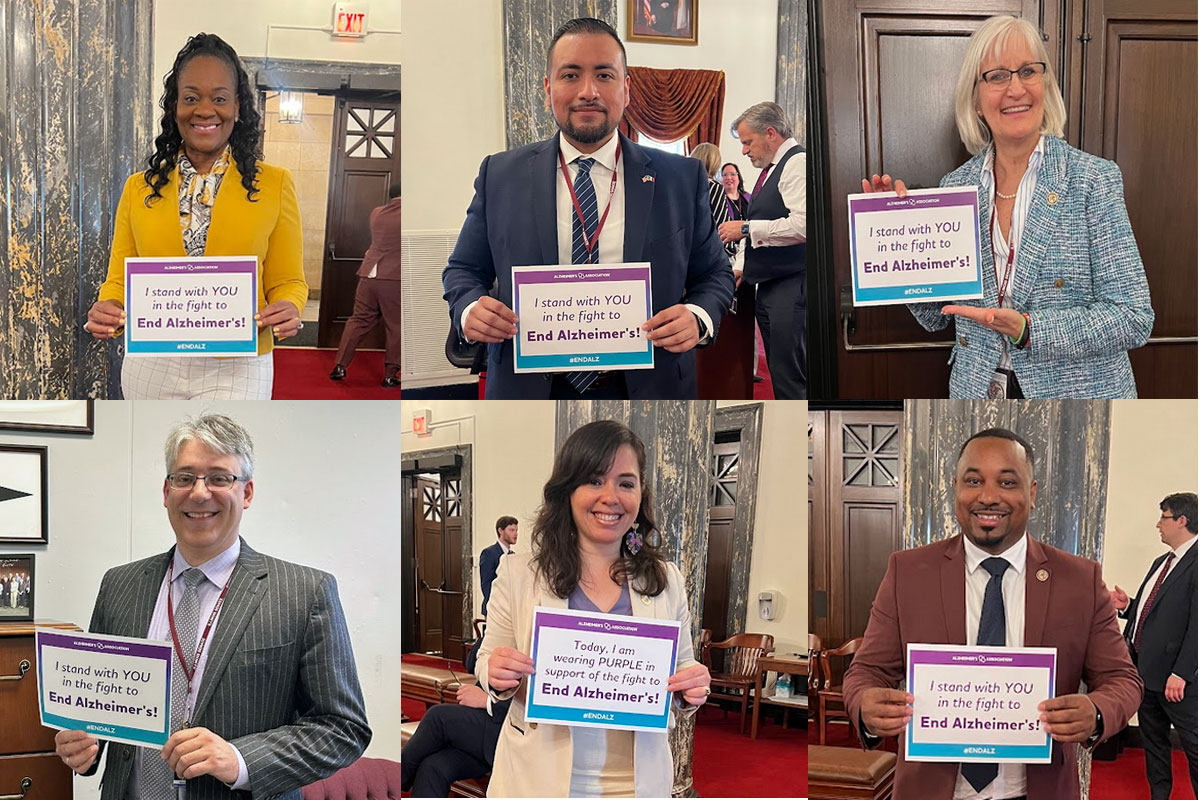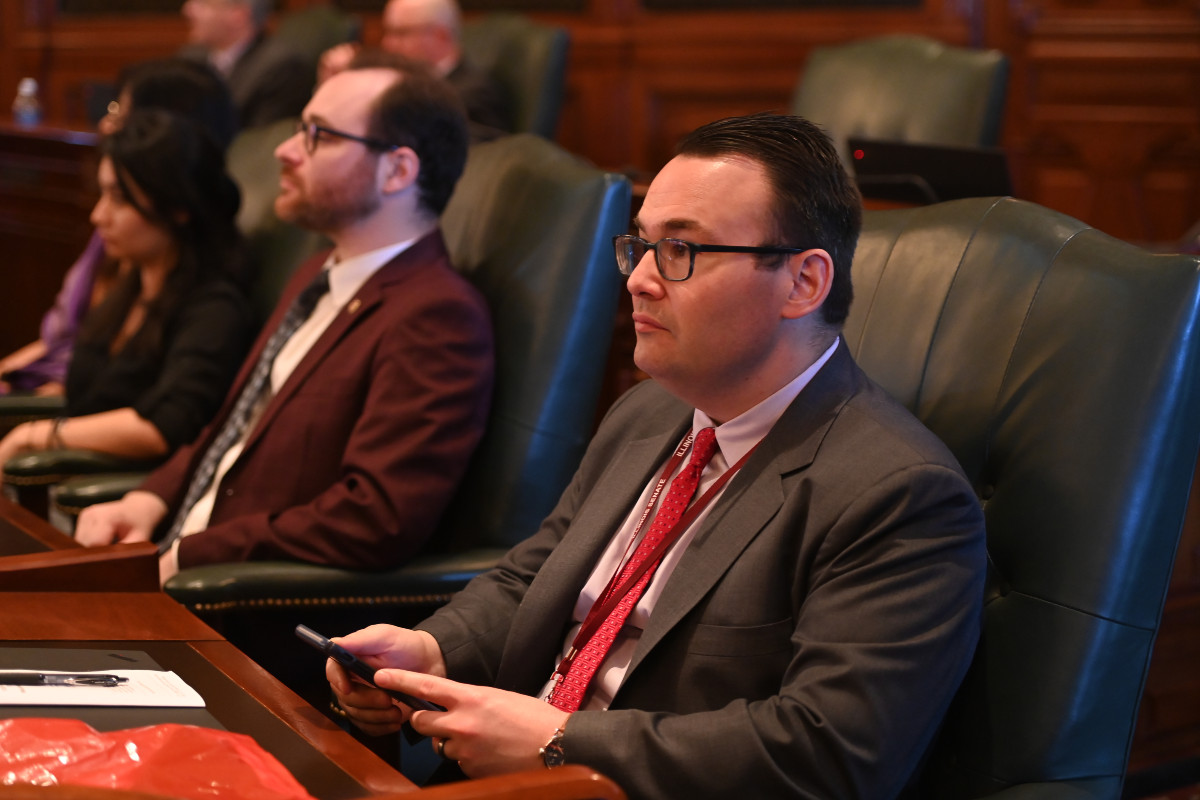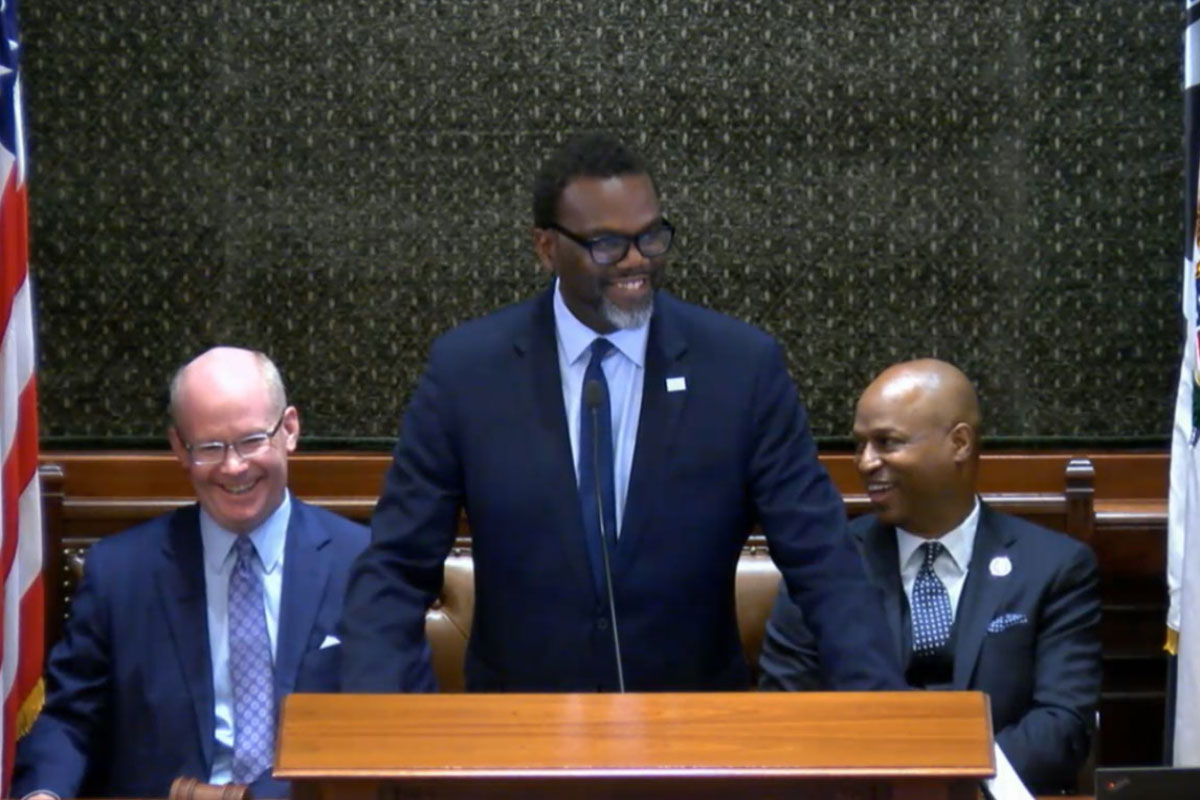- Details
- Category: Senator Robert Peters News
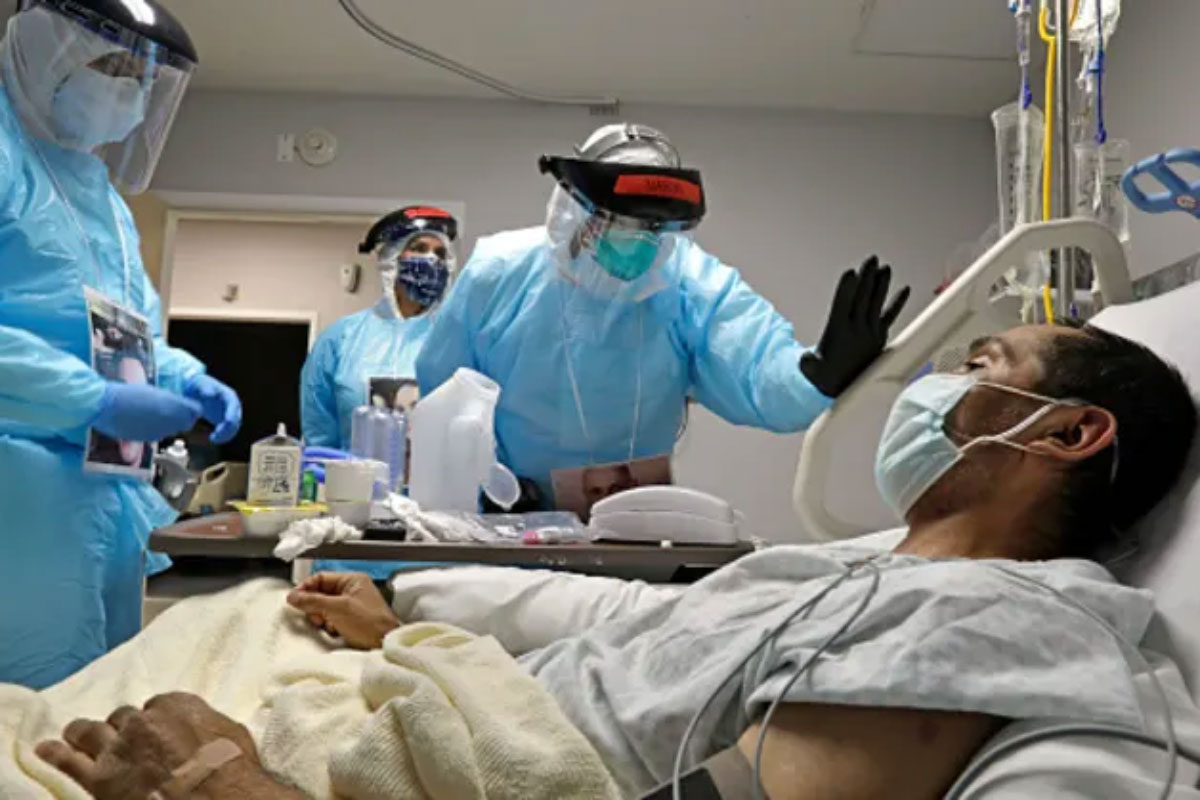 SPRINGFIELD – A measure carried by State Senator Robert Peters that would help connect patients to financial assistance for hospital costs passed the Senate Health and Human Services Committee Tuesday.
SPRINGFIELD – A measure carried by State Senator Robert Peters that would help connect patients to financial assistance for hospital costs passed the Senate Health and Human Services Committee Tuesday.
“The costs associated with health care upkeep are high, especially for those with pre-existing conditions and those who don’t have medical insurance,” said Peters (D-Chicago). “People should not have to choose between crippling debt and receiving necessary medical treatment.”
House Bill 2719 would require hospitals to screen a patient for financial assistance eligibility and exhaust all cost-reducing avenues before taking a collection action against the patient. Additionally, the measure would provide a 90-day window for a patient to apply for financial assistance or hospital-provided discounts after receiving care.
Read more: Peters pushes for financial assistance in hospitals
- Details
- Category: Senator Meg Loughran Cappel News
 SPRINGFIELD – In an effort to continue addressing the teacher shortage, State Senator Meg Loughran Cappel led a measure to increase the number of days substitute teachers can be in a classroom in an emergency situation.
SPRINGFIELD – In an effort to continue addressing the teacher shortage, State Senator Meg Loughran Cappel led a measure to increase the number of days substitute teachers can be in a classroom in an emergency situation.
“To make sure our students are getting the best education they can, we have to keep them with a familiar face,” said Loughran Cappel (D-Shorewood). “Increasing the number of days a substitute teacher can teach allows students to continue to learn and grow, and provides consistency in the classroom.”
- Details
- Category: Senator Mike Halpin News
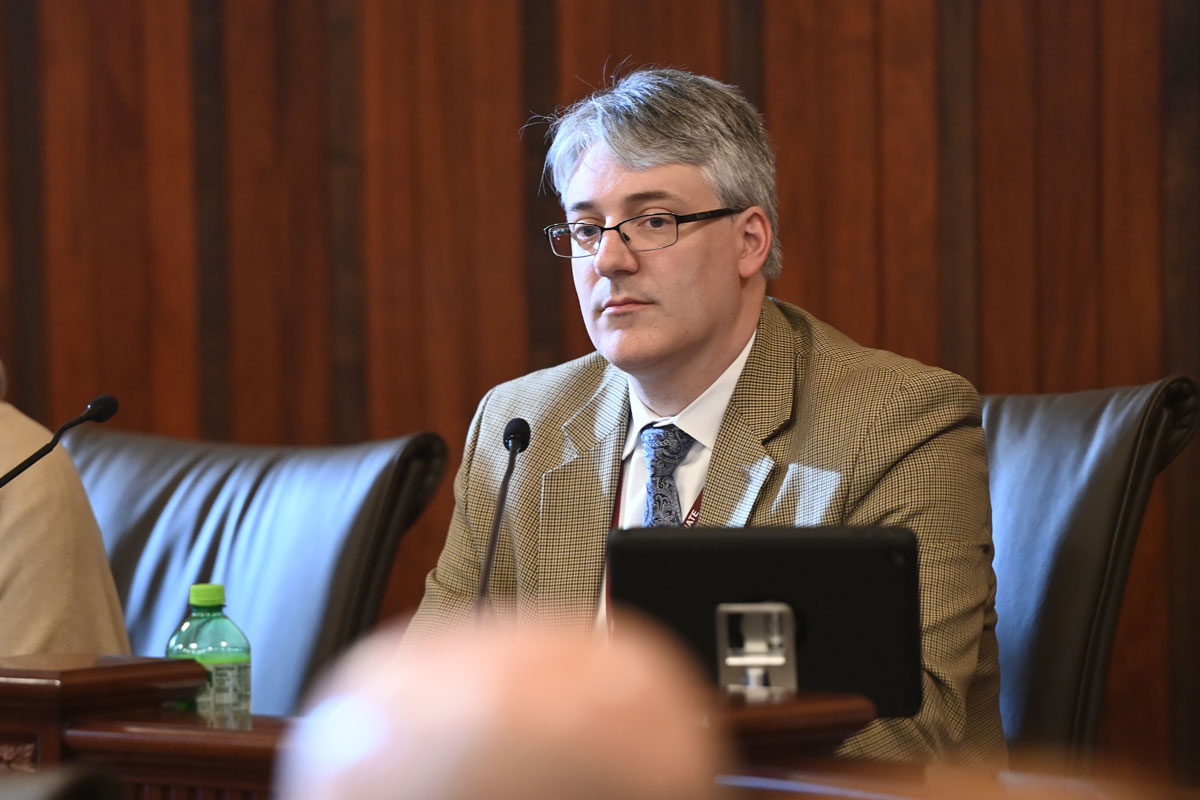 SPRINGFIELD – State Senator Mike Halpin advanced legislation that limits the cost of Epinephrine Auto-Injectors, commonly known by the brand name EpiPens, to a maximum of $60 per twin-pack.
SPRINGFIELD – State Senator Mike Halpin advanced legislation that limits the cost of Epinephrine Auto-Injectors, commonly known by the brand name EpiPens, to a maximum of $60 per twin-pack.
"No family should have to choose between paying for life-saving medication and putting food on the table," said Halpin (D-Rock Island). "This legislation is a major step towards making EpiPens more affordable and accessible to all Illinoisans who need them."
Read more: Senator Mike Halpin advances legislation to limit EpiPen costs
- Details
- Category: Senator Mike Simmons News
 SPRINGFIELD – To ensure property owners who limit rental, ownership or occupancy to people ages 55 and up have ample heating and cooling, State Senator Mike Simmons advanced a House bill out of the Senate Judiciary Committee on Tuesday.
SPRINGFIELD – To ensure property owners who limit rental, ownership or occupancy to people ages 55 and up have ample heating and cooling, State Senator Mike Simmons advanced a House bill out of the Senate Judiciary Committee on Tuesday.
“Senior residents are at a higher risk for heat stroke during summer months,” said Simmons (D-Chicago). “This bill will hold landlords, condominium associations and other property owners accountable in ensuring our older resident neighbors, both in the 7th District and across the state, live in safe and humane housing conditions.”
Read more: Simmons pushes to require air conditioning and heating for older residents
- Details
- Category: Senator Christopher Belt News

SPRINGFIELD – State Senator Christopher Belt advanced a measure through the Senate Education Committee Tuesday that would help address the ongoing teacher shortage in Illinois.
“Illinois is facing a crisis when it comes to recruiting and retaining qualified teachers, particularly in underserved communities,” said Belt (D-Swansea). “We need to address this issue so our children have access to quality education.”
House Bill 3801 would provide retention bonuses of $4,000 per year, for two consecutive years to teachers who are National Board Certified who are employed in hard-to-staff schools. A hard-to-staff school is a public school that no less than 30% of the student enrollment is considered low-income. Becoming a National Board Certified teacher is a career continuum for those that starts in pre-service teacher preparation, leading aspiring teachers to pursue and achieve National Board Certification.
Read more: Belt measure to help with teacher shortage passes committee
- Details
- Category: Majority Report
Senate Democrats support efforts to end Alzheimer's
SPRINGFIELD – Wearing purple to show their support, Senate Democrats joined advocates during the Alzheimer’s Association’s Week of Action last Wednesday in their effort to bring attention to the needs of those impacted by Alzheimer’s and other forms of dementia.
“Alzheimer’s is a terrible disease that affects the lives of not only those who are diagnosed with it, but their family, friends and loved ones as well,” said State Senator Karina Villa (D-West Chicago). “More than 230,000 people in Illinois are living with Alzheimer’s and dementia. I am proud to wear purple today to support the effort to end Alzheimer’s and will continue to fight this public health issue.”
Porfirio, Kifowit measure to protect military service members who are sexual assault survivors
SPRINGFIELD – In an effort to provide greater protections for military service members who are survivors of sexual misconduct, State Senator Mike Porfirio, a Navy Veteran, and State Representative Stephanie Kifowit, a Marine Corps Veteran, are fighting to move legislation to the governor’s desk.
“Survivors of sexual assault must receive all the protections they deserve,” said Porfirio (D-Lyons Township). “Service members sacrifice their lives for the protection of our country, the least we can do is ensure that they are protected as well.”
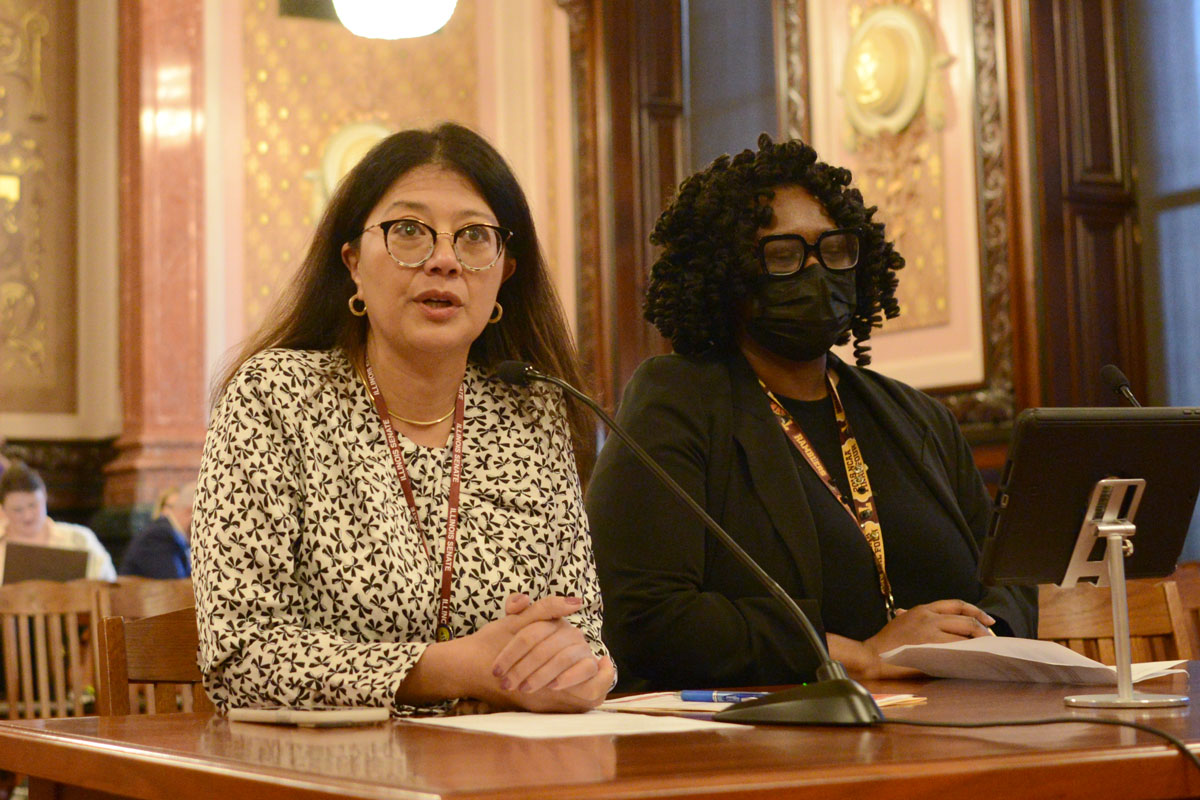 Villa advances measure to protect concertgoers from overdose
Villa advances measure to protect concertgoers from overdose
SPRINGFIELD – To increase patron safety at concert venues, State Senator Karina Villa moved a bill out of the Senate Public Health Committee to equip music venues with overdose-reversing medications.
“People go to a music festival or concert to enjoy themselves — one bad decision should not cost them their life,” said Villa (D-West Chicago). “Whether someone consumes a harmful substance on purpose or accidentally, this bill will save lives by expanding first aid in concert halls to include treating overdose.”
Harmon, Welch applaud Mayor-Elect Johnson's commitment to collaborative leadership
SPRINGFIELD – House Speaker Emanuel “Chris” Welch and Senate President Don Harmon welcomed Chicago Mayor-Elect Brandon Johnson to the State Capitol Wednesday, beginning a conversation on economic development, public safety, and moving Illinois and the City of Chicago forward together.
“I commend the mayor-elect for hitting the ground running, establishing his priorities and building relationships with the General Assembly before he even takes office,” said President Harmon (D-Oak Park). “I found inspiration with his central message that progressive values and economic prosperity are one and the same, and that we are proving it here in the great state of Illinois. I look forward to finding ways to work together in the years ahead.”

In case you missed it
MEMBERS IN THE NEWS
Senator Paul Faraci, Champaign: Illinois community college students may have automatic admission to more state universities, thanks to new bill | WCIA
Senator Suzy Glowiak Hilton, Western Springs: Bill requiring schools to teach Native American history heads to Senate floor | State Journal-Register
Senator Michael Hastings, Frankfort: Hastings advances measure to fight crime, track stolen vehicles | Suburban Chicagoland
Senator Meg Loughran Cappel, Shorewood: Illinois Senate Democrats: Reconstructive Surgeries for Trauma Survivors Would Be Covered Under Loughran Cappel Measure That Heads to Senate Floor | Insurance Newsnet
Copyright 2023 - Illinois Senate Democratic Caucus - All Rights Reserved
- Details
- Category: Senator Ram Villivalam News
 CHICAGO – State Senator Ram Villivalam is proud to support the Village of Skokie’s Early Intervention in Hate Crimes program in collaboration with law enforcement, schools, community social services and organizations.
CHICAGO – State Senator Ram Villivalam is proud to support the Village of Skokie’s Early Intervention in Hate Crimes program in collaboration with law enforcement, schools, community social services and organizations.
“Skokie is a vastly diverse community and with the growing threat of hate crimes and violence, I am proud to see the Village take steps to foster awareness within community organizations,” said Villivalam (D-Chicago). “Taking steps to work with different community organizations will help create a unified front against hate crimes in Skokie. It brings me hope to see collaboration like this within my community.”
Over the last 18 months, the Village of Skokie worked with Corporation Counsel Michael M. Lorge and Trustees Khem Khoeun and Kieth Robinson to conduct research with experts throughout the United States. The Village presented a program that will use local data collected on bias and hate incidents to anticipate and intervene on potential hate crimes.
The Village of Skokie also outlined the steps it will take to enact this program going forward, beginning with the recognition and acknowledgement that hate crimes exist, are underreported, are increasing in frequency and are occurring against every segment of protected groups in Skokie.
With the rising rate of hate crimes around the United States, the Village of Skokie is taking action within the community to address and prevent hate crimes with this program. The Skokie Police Department began tracking all bias- or hate-related incidents on Jan. 1, 2022, in anticipation of this program.
The goal of the intervention program is to collect data and information about incidents and occurrences that are reported formally as hate crimes, and any incident reported that involves an element of bias or hate against a protected class. The collection of this data will allow the Village to identify and assess possible trends and anticipate where in Skokie people might be prone to such behavior.
The Village is confident that the diversity within the community, coupled with the expressed common values of equity, respect and celebration of divergent cultures strengthens the social fabric that weaves the community together.
“This initiative takes tangible steps toward preventing hate crimes in Skokie and I am proud to see my community come together to address bias and hate toward our residents,” said Villivalam. “I look forward to seeing the project progress and working with community organizations to prevent any more horrific hate crimes from happening to our residents.”
The Village plans to provide opportunities to address situations in which hate interactions exist and to blunt or stop hate crimes that could grow from it.
- Details
- Category: Senator Laura Murphy News
 SPRINGFIELD – In order to protect the freedom of allowing people to read, State Senator Laura Murphy championed legislation to prevent the banning of books.
SPRINGFIELD – In order to protect the freedom of allowing people to read, State Senator Laura Murphy championed legislation to prevent the banning of books.
“The First Amendment protects more than just our right to speak, it includes the right to access resources from libraries that are free from censorship driven by partisan or doctrinal disapproval,” said Murphy (D-Des Plaines). “These coordinated campaigns to censor books stand as a direct affront to the principles our country was founded upon.”
Under this measure, a library or library system must adopt the American Library Association’s Library Bill of Rights or develop a written statement prohibiting the practice of banning books or materials in order to be eligible for state grants.
More Articles …
Page 211 of 768
